21 November 2022
Giving a voice to New Zealand patients undergoing CAR T-cell therapy is an important part of the Malaghan Institute’s CAR T-cell programme, to identify ways to improve patient care and CAR T-cell delivery, and ensure it is accessible to all New Zealanders.

Dr Robbie Fyfe
With a distinct population, geography, culture and infrastructure, introducing and integrating a new clinical therapy into the New Zealand healthcare system comes with its own set of opportunities and challenges.
CAR T-cell therapy is no different. Since treating the first participant in late 2019, the Malaghan Institute’s ENABLE trial (link) – a first for New Zealand – has required careful planning and a nuanced approach to CAR T-cell delivery and patient care every step of the way, to meet the diverse needs of our population. The RE-TELL study is an important part of this process. Run by Malaghan Institute clinician Dr Robbie Fyfe, in collaboration with Francis Health and Janssen, the study is helping paint a picture of the patient side of CAR T-cell therapy so the clinical team can optimise quality of care, and address any real or perceived barriers to accessing this ground-breaking treatment.
“We’ve conducted interviews with a total of 19 people to date,” says Dr Fyfe. “They represented a wide range of different groups including CAR T-cell patients, both treated in the ENABLE trial and those who received CAR T-cell therapy abroad, hospital staff who helped patients through treatment, and administrative staff who were involved in the organisation and logistics of bringing patients to Wellington for treatment.
“We got feedback on their experience and how it could be improved in the future. This included questions about how we can ensure a national CAR T-cell service in New Zealand is available to all, equally.”
Currently, the ENABLE trial operates out of Wellington Hospital, requiring most participants to travel between regions to receive treatment. The process of making and manufacturing CAR T-cells (link) takes several weeks from the initial visit, during which time participants return home before coming back to Wellington for treatment. Afterwards, there are check-ups with clinical staff to monitor for side effects and treatment response. Dr Fyfe says that each step along the treatment process affects people differently. Patient needs, and those of their support person, must be considered and accounted for if CAR T-cell therapy is to become an equitable standard of care.
“We have had referrals from Waitemata to Dunedin. For many participants, travelling to Wellington, first to extract their T-cells and then four weeks later to receive CAR T-cell treatment in hospital, can be difficult both practically and financially,” says Dr Fyfe.
“This is something that we see globally. The people who receive new, life-changing therapies often live in close proximity to research hospitals, which are usually in cities. We want CAR T-cell therapy to be accessible to all New Zealanders, so we hope to establish more treatment centres across the country once we reach our phase II clinical trial. This means more people can be treated too.”
The full findings from the RE-TELL study will be published in the near future, but the team are already looking at applying some of the findings to the clinical programme – such as exploring ways to reduce the time spent in hospital.
“Being far from home and away from loved ones for a significant period of time during an already difficult time can be really challenging for patients,” says Dr Fyfe. “On top of this, hospital stays can be quite boring, with days merging into one another. One patient got so bored they started doing her own laundry, stripping the bed, and making it up again just so they had something to do!
“If we can identify CAR T-cell therapies that are effective without a high rate of severe side effects, patients could receive their treatment as an outpatient, attending the hospital for check-ups. If we can remove the need for lengthy hospital stays, this could help improve patients’ wellbeing and take the burden off our health care systems.”
It's an exciting time to be in clinical research says Dr Fyfe, with CAR T-cell therapy having the potential to transform how we treat certain kinds of cancer.
“New Zealand is in a unique position. Against the backdrop of our very own CAR T-cell clinical trial, we can observe how revolutionary CAR T-cell therapies are being implemented aboard in places such as the UK, US and Australia, and we can plan how to tailor this treatment for our own population.
“Our long-term goal with CAR T-cell therapy is to offer this as a standard of care in New Zealand. We want to ensure New Zealanders can access this treatment in a fair and equitable way. The RE-TELL study will help us achieve this goal, which I’m really excited to be a part of.”
Related articles
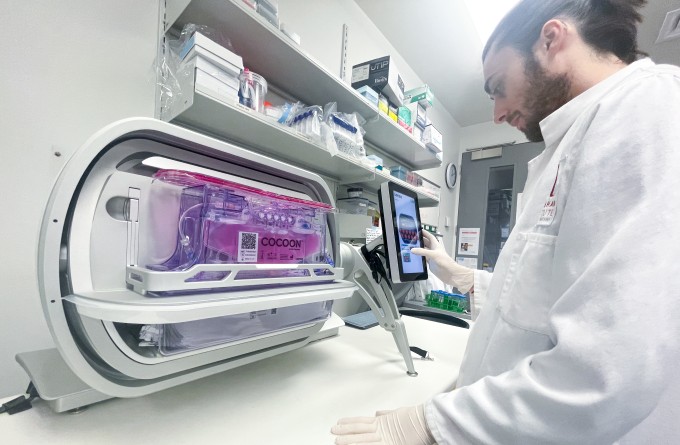
Malaghan CAR T-cell cancer therapy trial expands to Christchurch and Auckland
23 June 2025
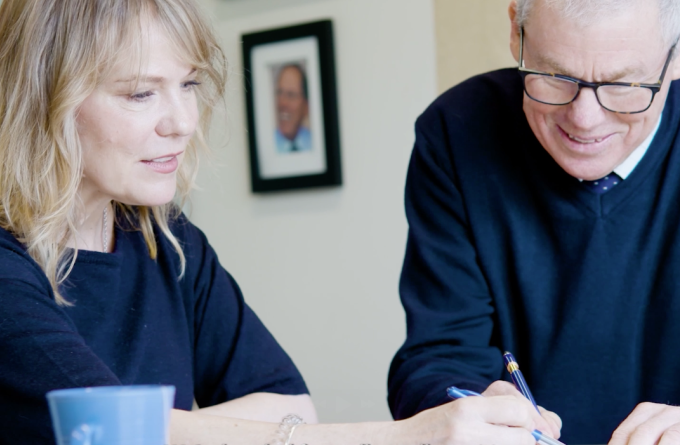
Kjesten Wiig: bringing life-changing treatments to life
27 February 2025
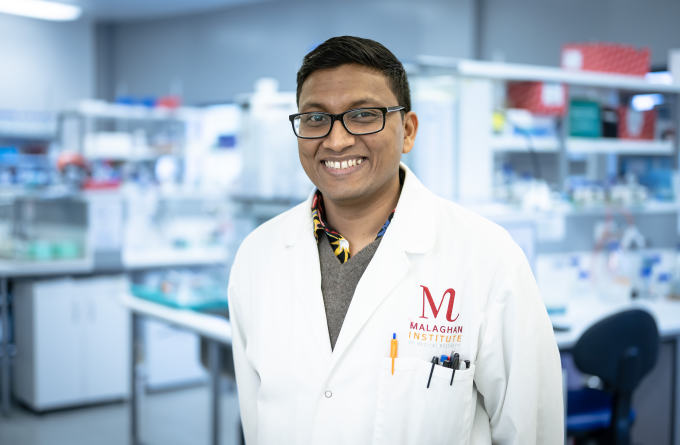
Cancer Research Trust grant to improve CAR T-cell therapy
12 February 2025
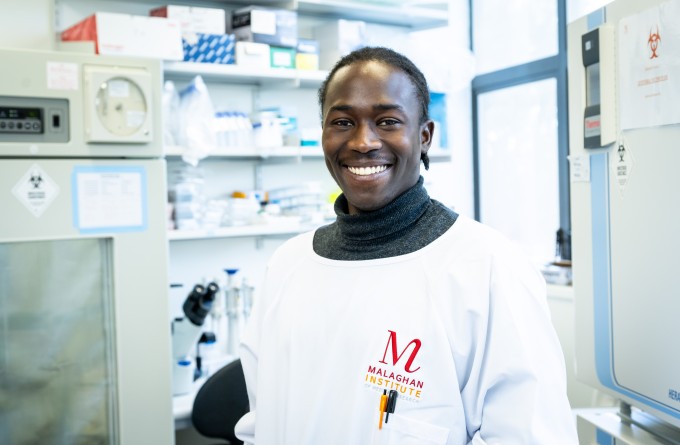
Community partnerships: Zephyr Consulting empowering emerging scientific talent
18 November 2024
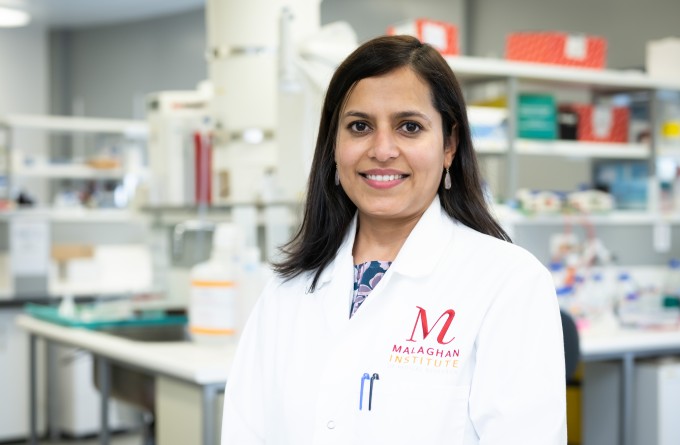
CAR T-cell therapy, the battle of the blood cells
26 September 2024
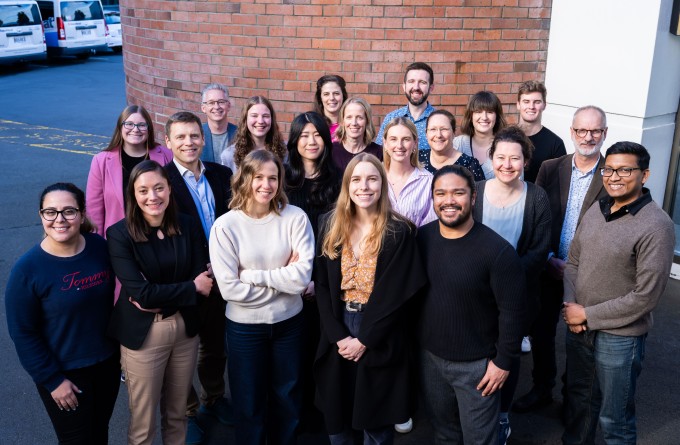
Phase 2 clinical trial underway to confirm effectiveness and safety of NZ’s first CAR T-cell cancer therapy
23 July 2024
